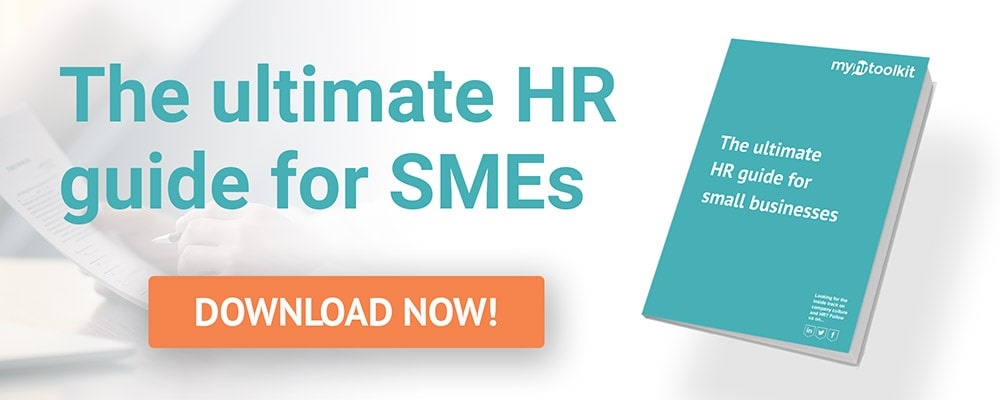What were the biggest HR highlights of 2021? HR consultant Gemma Dale looks back on the year that was and what will be on the HR agenda for businesses in 2022.
The year that was
2021 has been another challenging year for the HR profession. Perhaps it would be true to say that, in the second year of a global pandemic, these challenges have become more familiar than unprecedented.
2020 was a year of urgency and adaptation, leading many HR departments to spend months in crisis mode, dealing with the many twists and turns of COVID-19. Even if we have now begun to get used to operating in a pandemic, 2021 has been different but no less demanding. HR professionals have continued to manage complex and unfamiliar issues like the furlough scheme, the specific COVID-related difficulties faced by some sectors, and the need to keep workers healthy and safe.
Even amidst the difficulties, however, there have still been opportunities for HR to shine and create highlights along the way. As it is often said, from crisis can come new opportunities, and, from an optimistic point of view, these have been plentiful for Human Resources and organisations alike.
Here are just five highlights from 2021:
1. The rise of hybrid work
The so-called “great homeworking experiment” led to a greater understanding and acceptance of remote work. Employees generally feel more productive and able to balance their responsibilities. The very clear preference for more homeworking, echoed across sectors and countries, has resulted in many organisations introducing hybrid working arrangements as part of business as usual for the foreseeable future. The government’s Flexible Working Taskforce has recently launched guidance for employers on how to successfully implement hybrid work – and this looks set to be a part of the future of work.
Learn more: How to manage hybrid working requests
2. Flexible working acceptance
Although there is still a long way to go before flexible working is fully accepted everywhere, businesses are increasingly supporting flexible working arrangements with around one third of employers now accepting requests from day one of employment. The government has this year consulted on making flexible working the default position as well as other ways to strengthen the legislative framework associated with flexible working.
Learn more: The employer's guide to flexible working
3. The end of furlough
The furlough scheme provided a vital lifeline for many employees during the pandemic, preventing what could potentially have been many thousands of redundancies. Introduced at speed, its administration and often changing parameters certainly kept HR and payroll professionals on their toes. The scheme ended in September 2021 – it wasn’t perfect, and sadly it could not protect every job, but it supported millions of people through a very difficult time and its end signalled the beginning of reopening and a return to a more normal situation for many employees.
4. New agendas
For very different reasons, equality, diversity, and inclusion (EDI) and employee wellbeing have both seen an increased focused during 2021. These should be critical business issues for any company, but neither have necessarily received the focus they so badly need in the past. We can only hope that this new attention will be sustained beyond the pandemic, firmly cementing inclusion, and wellbeing on Board agendas, leading to long term improvements for employees everywhere.
Learn more: How to prevent discrimination in your business
5. HR finally gets a “seat at the table”
Every single part of the employee lifecycle was touched by the many and varied impacts of COVID-19: whether that was the shift to remote work or supporting key workers, HR had a huge amount to contribute to the business agenda in 2021. Whilst the reference to seats at tables is a long-standing cliché, referring to the fact that HR is not always truly seen as a strategic function fully represented at Board level, there can hopefully be no doubt now of the value a great HR function can bring to an organisation, whatever its size.
Learn more: How to create a business-driven HR strategy
Looking ahead – HR in 2022

Many of the HR challenges and changes resulting from the pandemic will be with us for years. Looking ahead to 2022, the items on the people agenda remain significant. There are hybrid working models to embed and all the changes that these bring with them. There is much talk of a possible ‘great resignation’ period, as employees rethink what matters to them most, potentially seeking changes to their working lives or new careers. Of course, there is also potential for long term health and wellbeing impacts on the workforce arising from the pandemic itself.
Finally, we also cannot forget the potential for yet more COVID-19 disruption on the horizon, with new variants already causing concern. The future of work has always been hard to predict, but regardless of what next year may bring, the HR profession of 2021 have proved they are very much ready to rise to the challenge.
Read more from the myhrtoolkit blog
HR professionals: what will your job look like in the future?

Written by Gemma Dale
Gemma Dale is an experienced senior HR professional, CIPD Chartered Fellow, HEA Fellow, and a regular speaker and writer on a variety of HR topics. Gemma is the co-author of the book 'Flexible Working' published by Kogan Page in 2020. She is also a lecturer in the Business School at Liverpool John Moores University and runs her own business, The Work Consultancy.


 Holiday Planner
Holiday Planner Absence Management
Absence Management Performance Management
Performance Management Staff Management
Staff Management Document Management
Document Management Reporting
Reporting Health and Safety Management
Health and Safety Management Task Management
Task Management Security Centre
Security Centre Self Service
Self Service Mobile
Mobile




